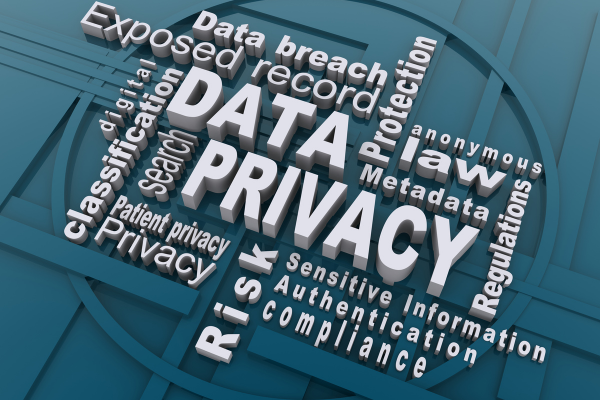In today’s digital age, data security has become a critical concern for individuals and organizations alike. The vast amount of sensitive information stored on electronic devices necessitates stringent measures to protect this data from unauthorized access and misuse. One essential aspect of data security is data destruction. But why is data destruction important?
Data destruction involves the complete and irreversible removal of data from storage devices, ensuring that it cannot be recovered or accessed by unauthorized parties. Unlike simple deletion, which often leaves traces that can be recovered, data destruction ensures permanent erasure. This blog will delve into why data destruction is important, exploring its significance in data security, the risks of improper practices, and the benefits of effective practices.
1. Understanding Data Destruction

What is Data Destruction?
Data destruction is the process of permanently and irreversibly eliminating data from storage devices. This process ensures that the data cannot be retrieved or reconstructed by any means, making it an essential component of comprehensive data security.
Data Deletion vs. Data Destruction
It’s important to distinguish between data deletion and data destruction. Data deletion typically refers to removing data from the visible file system, making it inaccessible through standard operating system functions. However, deleted data often remains on the storage device and can be recovered using specialized software.
Data destruction, on the other hand, goes beyond deletion by ensuring that data is completely erased and cannot be recovered. This is achieved through various methods, including physical destruction and digital methods such as data wiping and overwriting.
Common Methods
- Physical Destruction: This involves physically damaging the storage device so that it can no longer function. Common methods include shredding, crushing, and degaussing (using strong magnetic fields to disrupt the device’s magnetic domains).
- Digital Destruction: This involves using software to overwrite existing data with random patterns, making the original data unrecoverable. Methods include data wiping, overwriting, and encryption followed by key destruction.
2. The Risks of Improper Data Destruction

Data Breaches and Their Consequences
One of the primary risks of improper data destruction is the potential for data breaches. When sensitive data is not completely destroyed, it remains vulnerable to unauthorized access. Data breaches can lead to the exposure of confidential information, resulting in severe consequences such as financial losses, legal penalties, and reputational damage.
“As of May 2, 2024, there have been 30,578,031,872 known records breached in 8,839 publicly disclosed data breaches and cyber attacks” (IT Governance USA, 2024).
Identity Theft and Fraud
Improper practices can also result in identity theft and fraud. If personal information, such as social security numbers, credit card details, or medical records, falls into the wrong hands, it can be used to commit identity theft and other fraudulent activities. This not only affects the individuals whose data is compromised but also damages the trust and credibility of the organization responsible for safeguarding the data.
Legal and Regulatory Implications
Many industries are subject to strict data protection laws and regulations, such as the General Data Protection Regulation (GDPR) in Europe and the Health Insurance Portability and Accountability Act (HIPAA) in the United States. These regulations mandate the secure handling and destruction of sensitive information. Failure to comply with these regulations can result in significant legal consequences, including hefty fines and legal actions against the organization.
Financial Losses and Fines
The financial implications can be substantial. Organizations may face direct financial losses due to data breaches, such as costs associated with remediation efforts, legal fees, and compensation to affected individuals. Additionally, regulatory fines for non-compliance with data protection laws can be severe, further exacerbating the financial impact.
Damage to Reputation and Customer Trust
A data breach caused by improper practices can severely damage an organization’s reputation. Customers, clients, and partners expect their data to be handled securely, and a failure to do so can result in a loss of trust and confidence. Rebuilding a tarnished reputation can be a long and costly process, making it essential to prioritize proper practices.
In conclusion, understanding why data destruction is important is crucial for protecting sensitive information and maintaining data security. By recognizing the risks associated with improper practices, organizations can take proactive steps to implement effective data destruction practices, ensuring compliance with legal requirements and safeguarding their reputation.
3. Benefits of Proper Services
Protection Against Data Breaches and Cyberattacks
One of the primary reasons why data destruction is important is its role in protecting against data breaches and cyberattacks. Proper practices ensure that sensitive information is permanently erased, eliminating the risk of it being recovered and misused by malicious actors. By securely destroying data, organizations can significantly reduce their vulnerability to cyber threats.
Ensuring Compliance with Legal and Regulatory Requirements
Compliance with data protection laws and regulations is another crucial reason why data destruction is important. Regulations such as the General Data Protection Regulation (GDPR) and the Health Insurance Portability and Accountability Act (HIPAA) mandate strict guidelines for the handling and destruction of sensitive information. Proper practices help organizations adhere to these legal requirements, avoiding hefty fines and legal consequences.
Safeguarding Sensitive and Proprietary Information
Proper practices are essential for safeguarding sensitive and proprietary information. Whether it’s personal data, financial records, or intellectual property, ensuring that data is irreversibly destroyed prevents unauthorized access and protects the confidentiality of critical information. This is especially important for businesses that handle large volumes of sensitive data.
Enhancing Customer Trust and Corporate Reputation
Implementing robust practices is vital for enhancing customer trust and maintaining a positive corporate reputation. Customers and clients expect their data to be handled securely. Demonstrating a commitment to proper practices reassures stakeholders that their information is safe, fostering trust and loyalty. A strong reputation for data security can also differentiate a company from its competitors.
Reducing Risk of Identity Theft and Fraud
Proper data destruction plays a key role in reducing the risk of identity theft and fraud. By ensuring that personal information is completely erased, organizations can prevent this data from being exploited by identity thieves. This not only protects individuals but also reduces the potential for fraud-related financial losses and legal issues for the organization.
4. Legal and Regulatory Requirements

Overview of Major Data Protection Laws (GDPR, HIPAA, etc.)
Understanding why data destruction is important includes recognizing the legal and regulatory landscape. Major data protection laws, such as the GDPR in Europe and HIPAA in the United States, set stringent standards for the handling and destruction of sensitive information. The GDPR, for instance, requires organizations to implement appropriate technical and organizational measures to ensure data security, including secure destruction. HIPAA mandates similar protections for health-related information.
Industry-Specific
Industry-Specific Requirements
Different industries have specific requirements to ensure the security of sensitive information. For example, the financial sector must comply with regulations such as the Gramm-Leach-Bliley Act (GLBA), which mandates secure disposal of customer information. The healthcare industry, governed by HIPAA, requires covered entities to implement policies and procedures for the secure destruction of protected health information (PHI). These industry-specific requirements highlight why it’s important for maintaining compliance and protecting sensitive data.
Consequences of Non-Compliance
The consequences of non-compliance with regulations can be severe. Organizations that fail to properly destroy sensitive data may face significant financial penalties, legal action, and reputational damage. Under GDPR, fines for non-compliance can reach up to €20 million or 4% of the company’s global annual turnover, whichever is higher. HIPAA violations can result in fines ranging from $100 to $50,000 per violation, depending on the level of negligence. These potential penalties underscore why data destruction is important for legal and financial protection.
5. Implementing Effective Practices
Developing a Policy
Understanding why data destruction is important begins with creating a comprehensive policy. This policy should outline the procedures and standards for securely destroying data within an organization. It should include:
- Identification of Sensitive Data: Clearly define what constitutes sensitive data and what needs to be destroyed.
- Destruction Methods: Specify the approved methods for both physical and digital data destruction.
- Roles and Responsibilities: Assign clear responsibilities for tasks to specific personnel or departments.
- Documentation and Record-Keeping: Maintain detailed records of all data destruction activities to ensure compliance and accountability.
Regular Audits and Monitoring
Regular audits and monitoring are essential components of effective practices. Conducting periodic audits helps identify any gaps or weaknesses in the process, ensuring that all practices are up-to-date and compliant with current regulations. Monitoring tools can track data destruction activities in real-time, providing insights into potential issues and areas for improvement.
Employee Training and Awareness
Employee training and awareness are crucial for ensuring that policies are followed correctly. Regular training sessions should be conducted to educate employees about the importance of data destruction and the specific procedures they need to follow. Creating a culture of data security awareness helps prevent accidental mishandling of sensitive information.
Choosing the Right Methods for Different Types of Data
Different types of data require different destruction methods. Understanding why data destruction is important involves selecting the appropriate method for each type of data:
- Physical Destruction: Suitable for hard drives, CDs, and other physical storage devices. Methods include shredding, crushing, and degaussing.
- Digital Destruction: Suitable for data stored on active devices. Methods include data wiping, overwriting, and encryption followed by key destruction.
Partnering with Certified Service Providers
Partnering with certified data destruction service providers ensures that data is destroyed securely and in compliance with relevant regulations. Look for providers with certifications such as:
- R2v3 (Responsible Recycling) Standard
- ISO 14001:2015 Certified
- ISO 45001:2018 Certified
- ISO 9001:2015 Certified
- NJDEP Class D Facility
- EPA Registered
These certifications demonstrate a commitment to the best practices in data destruction and environmental stewardship.
6. Challenges
Handling Large Volumes of Data
One significant challenge is managing and securely destroying large volumes of data. As organizations generate vast amounts of data daily, keeping track of what needs to be destroyed and ensuring it is done correctly can be daunting. Effective data management and categorization are essential to handle this challenge efficiently.
Ensuring Complete Destruction
Ensuring complete destruction of data is critical but challenging. Incomplete destruction can leave traces of data that skilled hackers can recover. It is essential to use reliable methods and certified service providers to ensure that data is entirely and irreversibly destroyed. Understanding why data destruction is important helps emphasize the need for thorough and reliable practices.
Costs Associated
The costs can be substantial, especially for large organizations with vast amounts of data. These costs include the expense of destruction equipment, service provider fees, and potential downtime during the destruction process. However, the cost of not properly destroying data can be even higher, considering the potential for data breaches and legal penalties
The Importance of Proper Practices
In today’s digital age, safeguarding sensitive information and maintaining robust data security are paramount. Proper practices are essential to mitigate the risks of data breaches, identity theft, and legal non-compliance, ensuring both organizational and personal data remain protected.
Businesses must regularly evaluate and improve their methods, adhering to best practices and staying compliant with evolving regulations. By recognizing the critical importance of secure data practices and implementing effective strategies, organizations can significantly enhance their data security posture.
For expert data destruction services, contact Monmouth Wire Computer Recycling. Our certified professionals ensure that your sensitive information is securely and completely destroyed, providing you with peace of mind and protection against data-related risks.

